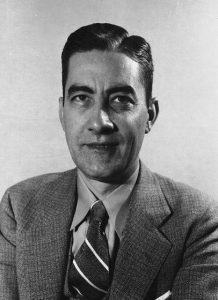
(June 3, 1894-June 23, 1973). A native of Lima, Peru, Mazzini attended the University of Wisconsin, Butler University, and Indiana University. Because of political unrest in Peru, he moved to the United States permanently in 1916.
Mazzini’s association with the (IUSM), as professor of serology and pathology, began in 1924. From 1933 to 1947, he served the Indiana State Board of Health as a laboratory scientist and serologist. He began his own laboratory in 1947, although he continued to lecture on serological methods at IUSM.
In 1939, he developed the Mazzini test for syphilis (lipoidal flocculation test), which was faster, cheaper, and more sensitive to all stages of syphilis than the commonly used Wassermann Test. Mazzini donated the patent rights for his test, which was employed by the Armed Forces during World War II, to the Indiana University Foundation. In 1950, he developed a more accurate syphilis test, the Mazzini cardiolipin test, which was adopted by the United States Public Health Service.
Mazzini also owned the College Inn on Michigan Street, across from Long Hospital. The inn was a popular gathering place for medical and dental students; today, a plaque honoring Mazzini occupies a spot at its former location. The IUSM also has a faculty position in pathology named in Mazzini’s honor.

Help improve this entry
Contribute information, offer corrections, suggest images.
You can also recommend new entries related to this topic.